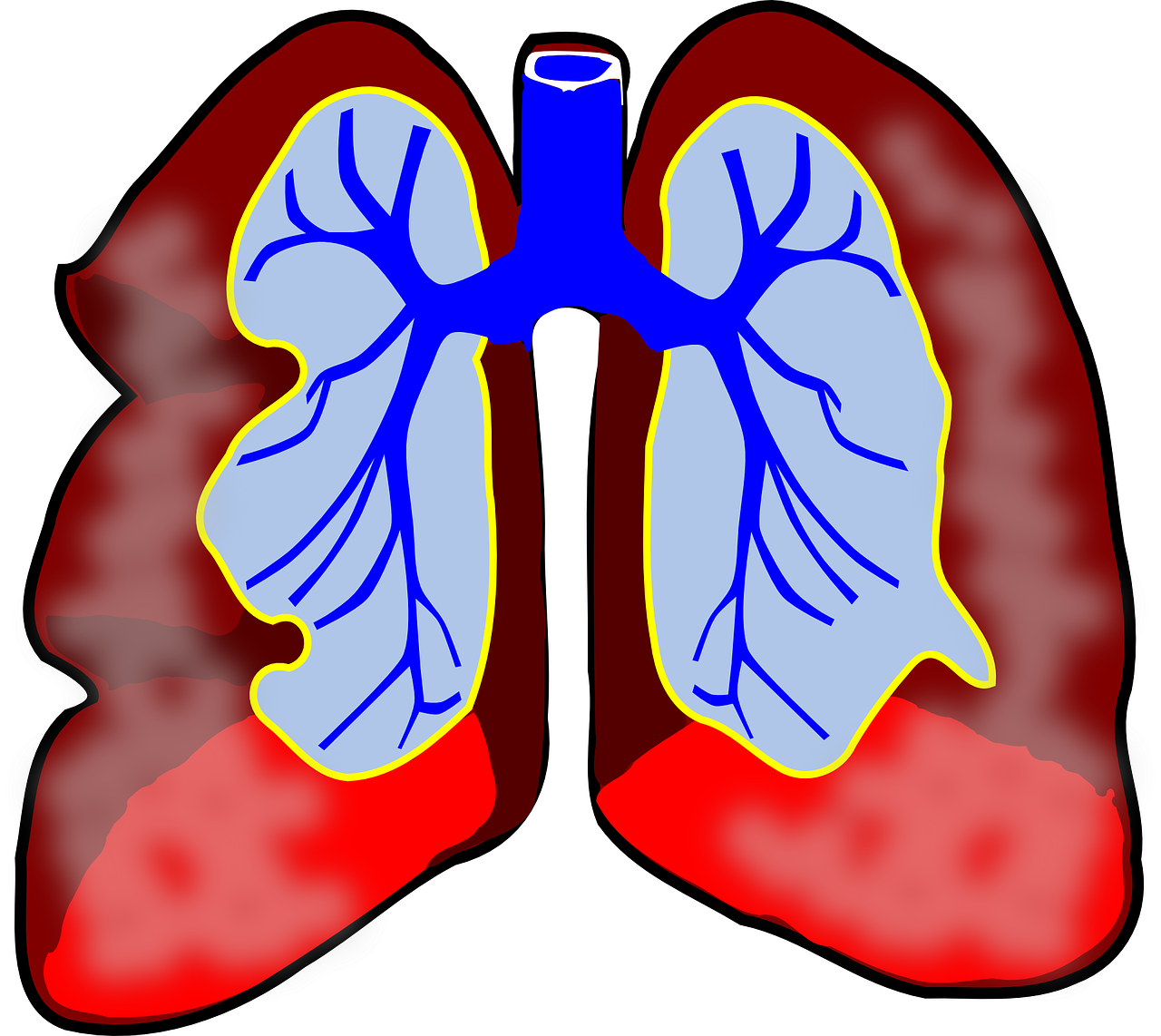Without a doubt, senior people are more likely to get asthma. The “winterbourne effect” is believed to contribute to this. The winterbourne effect is a causal chain between air pollution, asthma, and the elderly.
Asthma occurs more often during the winter when there is
excessive exposure to allergens and pollutants. This exposure takes place through the respiratory tract, which causes an increase in bronchial muscle contractions. From that point on, virus infections can start building up inside the lung tissue, leading to a severe asthmatic attack at any given moment in time.
With age, the risk of an asthma exacerbation increases due to many factors, like incapacity, aggravating conditions, and even certain medications. Find out the leading cause of asthma in your loved ones and understand how to prevent it. Let’s dive straight into it.
What Is Asthmatic Attack In the Elderly?
Asthma is a chronic respiratory disease that causes the airways to become inflamed, making breathing difficult. The most common symptoms of an asthma attack include wheezing, coughing, shortness of breath, and chest tightness.
Many people have severe asthmatic attacks. Asthma attacks can be triggered by certain substances (allergens), such as pollen, dust mites, cockroaches, and animal dander. The condition also can be brought on by exercise or cold weather.
Asthma attacks are treated with inhalers, which deliver medication directly into the lungs to open up the airways and ease breathing. In some cases, doctors may recommend medications that decrease swelling in the airway passages or prevent allergic reactions.
What Happened During An Asthma Attack?
Asthma attacks result from inflammation and swelling (inflammation) in the airways. The airways are tubes that carry air to and from your lungs. These tubes become narrow and filled with mucus when you have severe asthma. During an asthma attack, the lining of the airways becomes swollen, irritated, and red. This swelling makes it harder to breathe.
An asthma attack is when your airways narrow suddenly, and your breathing becomes difficult. The symptoms of an asthma attack include wheezing, coughing, and difficulty breathing. Asthma can also cause flare-ups or periods of worsening symptoms (known as exacerbations). These flare-ups are often caused by exercise or exposure to allergens (such as pollen).
When this happens, breathing becomes problematic because it takes more effort to move air past the constriction in your lungs and into your bloodstream. Asthma attacks can last minutes or hours, but they usually start within 10 minutes after exposure to whatever triggers them (allergens).
What Causes an Asthma?
Several reasons why severe asthmatic attack is more common in senior people.
1. Older Age
It’s no secret that older age is a risk factor for asthma. As people age, their lungs lose elasticity and become more vulnerable to inflammation. This can lead to shortness of breath and wheezing when the airways become narrowed or inflamed.
2. Allergies
Allergies are also more common in seniors because they’re more likely to have been exposed to allergens throughout their lives. Certain dust mites and cockroach droppings can trigger allergic reactions in some people with asthma. Seniors may also be sensitive to certain foods, such as nuts and shellfish, which can cause hives or anaphylaxis (when an allergen triggers a severe whole-body reaction).
3. Bronchitis and Pneumonia
Your parents with asthma, bronchitis or pneumonia can cause or worsen asthma symptoms. For example, if they have asthma along with chronic obstructive pulmonary disease (COPD), they might develop pneumonia as a complication of COPD.
4. Chronic Obstructive Pulmonary Disease (COPD)
Chronic obstructive pulmonary disease (COPD) is another common cause of asthma symptoms in senior population. It involves their lungs’ alveoli, the tiny sacs where oxygen gets into their bloodstream and carbon dioxide leaves. If they’re damaged by repeated exposure to irritants like cigarette smoke or air pollution over time, they don’t work well anymore — so you end up with severe asthmatic attacks.
5. Emphysema
Emphysema is another chronic lung disease that affects millions of Americans each year. It’s characterized by damaged cells in their lungs that no longer stretch easily to let air pass through them into their bloodstream.
6. Other Conditions
Seniors are also prone to other conditions that can cause breathing problems, such as COPD (chronic obstructive pulmonary disease), emphysema, and chronic bronchitis. These conditions occur when there’s too much mucus in lungs and airways, making them difficult to breathe through correctly.
Why Is Asthma So Common Among Older Adults?
There are several reasons why your grand parents are more likely to have severe asthmatic attacks than younger people:
- Age-related changes in lung function make it more difficult to cough up secretions that may trigger an attack.
- Changes in immune function make it harder for older adults to fight off infections that can trigger asthma symptoms.
- They tend to have more health problems than younger adults, making it more challenging to manage their symptoms effectively and respond appropriately when they get sick.
How Is Asthma In The Elderly Different?
Your grandparents with asthma have a unique set of challenges. They may have more difficulty breathing and are at risk for complications such as pneumonia or other infections, heart failure, and even death. They also may have other medical conditions that affect how well they respond to treatment.
Because their bodies don’t work as well as they used to, their doctors must monitor their asthma carefully for signs of worsening symptoms or new problems. And because they are often on several medications, they must work with their doctor to ensure that all the medications they take aren’t interacting or causing side effects.
A study published in 2010 found that older people with asthma were more likely than younger patients to have multiple allergies and sensitivity to food and dust mites. These factors can worsen asthma when combined with other factors such as smoking or chronic obstructive pulmonary disease (COPD).
Is It Possible To Reverse Asthma And Its Symptoms In Your Grandparents?
Yes, with some work, it’s possible to reverse asthma and its symptoms in them. And that’s great news for your grandparents and other elderly relatives with asthma. The respiratory condition is more common among people over 55, so if you’re reading this as an adult child taking care of your aging parents, it affects you too.
To reverse asthma and its symptoms in the elderly, doctors recommend having them take daily supplements of vitamins B3, B5, B6, and E, as well as fish oil capsules. These are all crucial ingredients for keeping airways healthy and preventing inflammation.
In addition to following a healthy diet—no smoking or excessive drinking—and regular exercise (though you probably already know this), adding these supplements may be just what your grandparents need to feel like themselves again.
If they’ve been living with asthma for years or even decades, their symptoms might have become deeply engrained in their everyday routines; reversing those symptoms may take time and patience. But the results will be worth it: you’ll likely see your grandparents feeling better than they have in years!
Asthma attacks can make you feel like you can’t catch your breath and that you must use your rescue inhaler all day. For some people with asthma, this might mean using their rescue inhaler several times a day for as long as they live.
Knowing how to reverse asthma and its symptoms in your grandparents will help make your life easier so you can stop using your rescue inhaler and start living again! This is where From the Heart Home Care Services comes in. They offer home care services for your elderly parents to make them healthy and fit.
Why Is It Important To Treat Asthma On Time?
When neglected, it can lead to some complications that are more severe than the symptoms of asthma itself. This disease can trigger many problems in the lungs and other body organs.
It is essential to treat this disease, especially when its symptoms are noticed. That would be the first stage of treatment because if you wait for a long time, it would be harder to treat it, and only medical specialists can do that.
They need to follow their doctor’s advice to start treatment when diagnosed with asthma. They need to take their medications at the right time and understand how to use them. Asthma is a chronic condition and can be managed when appropriately treated. If there are no treatments, asthma could cause serious complications, such as flare-ups, infections, or even death.
If you think you have asthma, don’t hesitate to seek medical help for a proper diagnosis. The first step is to see a doctor and get a prescription for medication. If that doesn’t do the trick, you can also do other things to help treat your asthma before it gets too bad. Using an inhaler daily may relieve their symptoms and prevent more serious complications from happening later in life if left untreated.
How Is Asthma Diagnosed?
Diagnosing asthma can be challenging because many people with asthma don’t have the typical symptoms of shortness of breath, wheezing, and chest tightness.
For example, asthma may present differently in older adults than younger people. In some cases, seniors may only experience fatigue and anxiety as their primary symptoms. Other times, they may experience symptoms such as coughing or chest tightness without wheezing.
If you have asthma, it’s essential to know what your symptoms look like to seek treatment when these signs appear.
If you suspect your loved one has asthma, you can talk to their doctor about the following:
· A Physical Examination
The doctor will take a medical history and perform a physical exam. During the exam, they’ll look for signs of respiratory diseases such as chronic bronchitis, pneumonia, or emphysema.
· Blood Tests
The doctor may order blood tests to check for allergic reactions or anemia — both common in people with asthma.
· Chest X-Ray or CT scan
These tests can help doctors determine whether your loved one has severe or chronic asthma and whether they’re experiencing other conditions that might be causing their symptoms (like heart disease or emphysema).
· Spinal Tap and Pulmonary Function Tests (PFTs)
Doctors can also use these procedures to measure airway inflammation.
How Is Asthma Treated In Seniors?
If you have asthma, your doctor will work with you to develop a treatment plan based on your symptoms and triggers. Here are some ways that asthma is treated in seniors:
1. Use an Asthma Action Plan
An action plan is a written document that outlines how you’ll manage your asthma during an attack or flare-up. It includes instructions on what medications to take when to use them, how often, and when not to use them, what side effects may occur, who to call for help, what other treatments may be needed, what symptoms mean, and how long each attack will last.
Your doctor or nurse practitioner should write the plan with you, so everyone knows what to do if an attack occurs — this ensures everyone knows what steps must be taken at all times.
7. Avoid Triggers
One meaningful way to prevent an asthma attack is to avoid allergens or irritants that trigger symptoms. Exposure to cigarette smoke is one common trigger for seniors with asthma. If possible, ask friends and family members who smoke to step outside when they visit so as not to expose you.
8. Take Medications Regularly
If you have been prescribed an inhaler or other medication for their asthma symptoms, make sure you take it as prescribed by doctor or pharmacist — even if symptoms improve before taking the entire dose. If your grandparents forget to take their medication on schedule, call doctor immediately so they can discuss whether it’s necessary or not.
What Lifestyle Changes Should Be Made for the Elderly When Having Asthma?
It is imperative to know how to prevent asthma. Here are some lifestyle changes you should make for your elderly who have asthma:
· Exercise Regularly
Everyone needs to exercise regularly, but it’s essential for people with asthma. Exercise helps strengthen the muscles around lungs and improves breathing capacity, which helps prevent flare-ups.
· Eat Healthy Foods
A diet low in saturated fats and high in fruits, vegetables, nuts, and whole grains can reduce inflammation and improve overall health. If they’re overweight or obese, losing weight can also help prevent flare-ups by reducing inflammation and improving lung function.
· Get Enough Sleep
Sleep deprivation increases inflammation throughout the body, including in respiratory system. Getting adequate sleep helps maintain a healthy immune response while lowering stress levels, which can help reduce the risk of asthma flare-ups.
· Reduce Stress
Stress is another factor that contributes to unhealthy immune responses that can lead to flare-ups of asthma symptoms like shortness of breath.
Summing Up!
By knowing the causes of asthma symptoms in the elderly, you will be able to help your loved one better. If you are faced with asthma symptoms contributing to a decline in your loved one’s quality of life, medications are available with no side effects.
There are also prescription and over-the-counter inhalers for different asthma symptoms, so the best thing is recommended if you do not know how to prevent asthma attacks.
If your aging parents or grandparents are vulnerable to asthma, ensure you look out for the symptoms and treat them with utmost care. If you are in an emergency and see one or two of the symptoms mentioned above, immediately call the doctor. Need home care services? Contact us right now!
Home Care Near Me. Let’s Get Started!
Get Immediate Help with Information, Costs & Payment Options.







